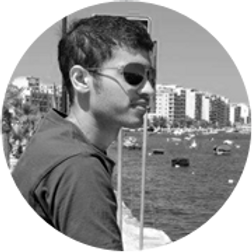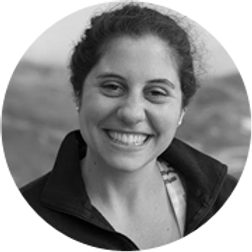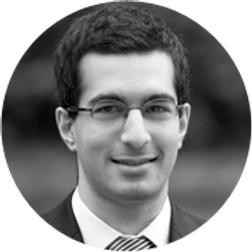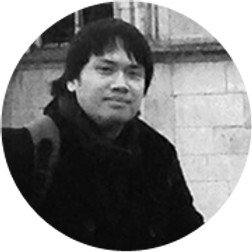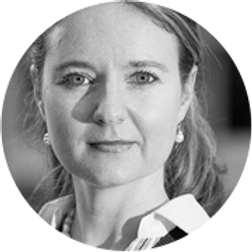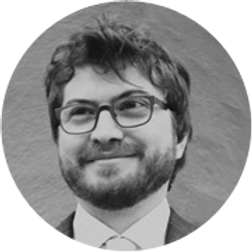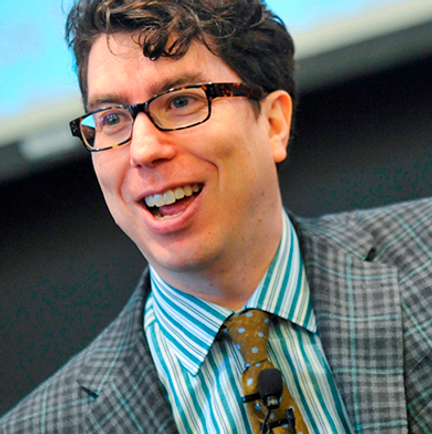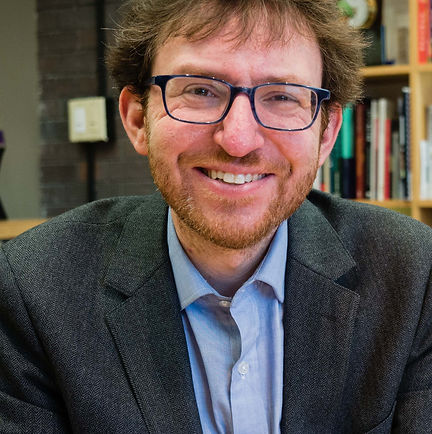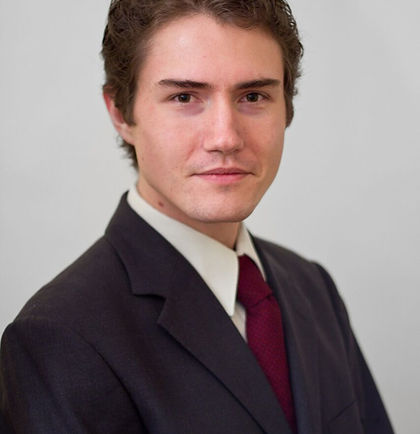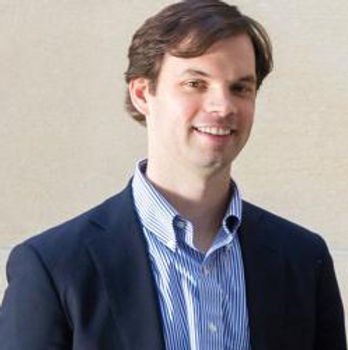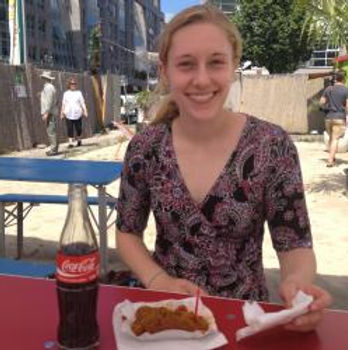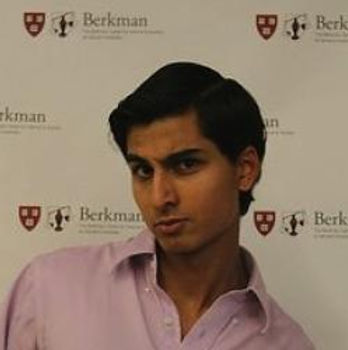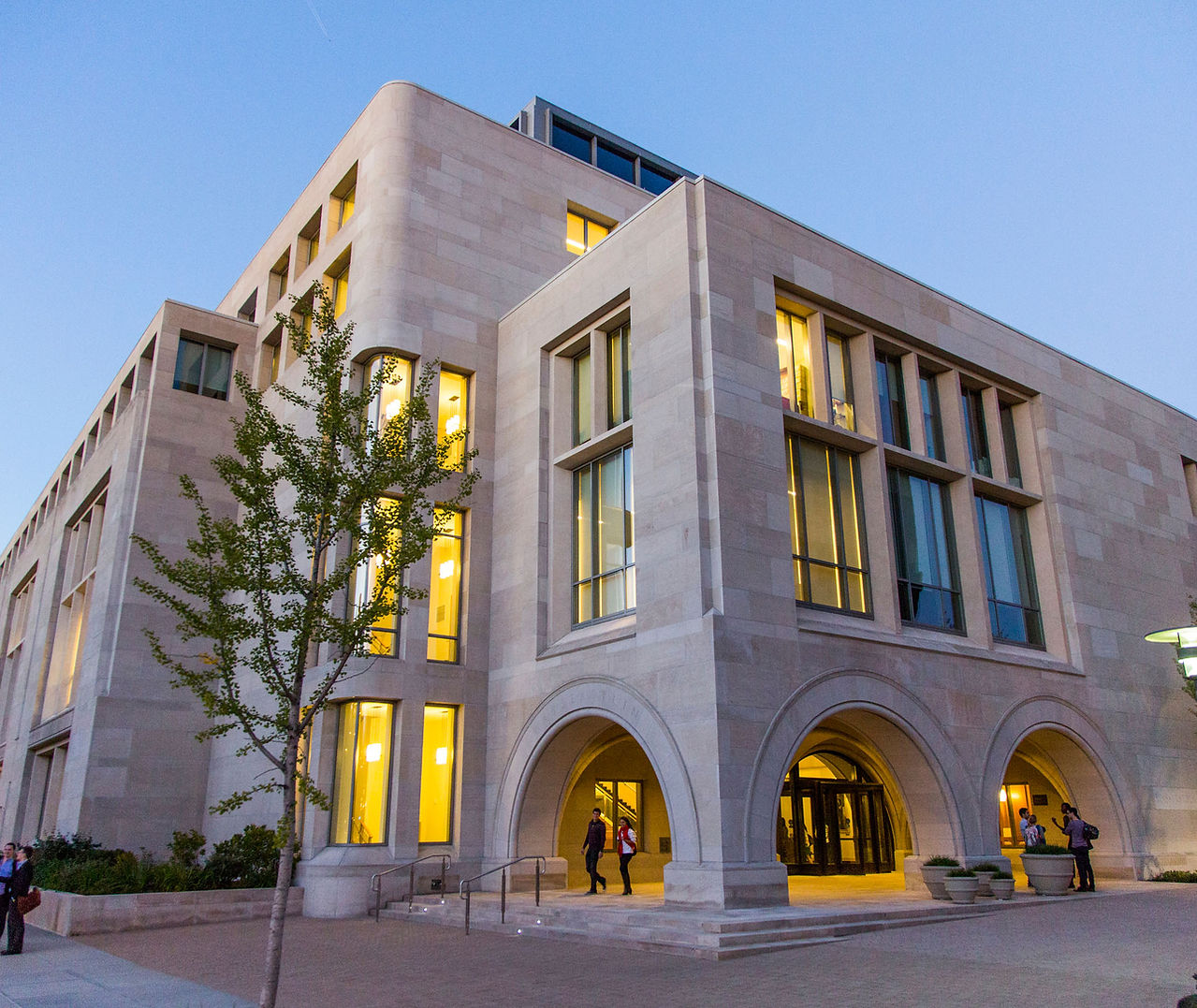

2017 Assembly Fellowship
Cohort Members
BOBO BOSE-KOLANU
PhD Student in Literature at Duke University
Abhishek (Bobo) Bose-Kolanu is an eclectic man. As a scholar, his research focuses on rethinking computation as a critical practice, and draws heavily from computer science and media theory, with secondary influences from pure math and critical theory. He is currently engaged in a book-length project at the intersection of these fields, with the goal of building a novel "media theory of computation." He is also engaged politically, with a recent publication in Hyperrhiz entitled Occupied Media: Sentences on Para-Philosophical Practice. As a research-practitioner, his computer science work often engages distributed systems, with a special emphasis on protecting user privacy from states and corporations. To that end, recently released work includes easychromium, a collaboration with Google engineers that helps normal users build and install the open source browser Chromium, better known as its closed-source cousin, Chrome. Other research-in-progress includes AIR (Anonymized Internet Resource) for Dark Clouds, a darkweb-inspired infrastructure for building anonymous clouds, and Aviary, a distributed warrant canary system. He is currently pursuing his PhD in the Literature program at Duke University, and holds an MS in Computer Science, completed concurrently with his doctoral work.
NOMI CONWAY
Product Manager on Risk & Security Team at Square
Nomi Conway is a San Francisco based Product Manager on the Risk & Security team at Square. She spends most of her time thinking through ways to mitigate account takeovers, phishing, and other cyber threats while striking the right balance between security and usability. She is passionate about researching authentication and authorization methods and can’t wait for the day that passwords die. Before Square she researched American diplomatic relations with the Middle East and in a future life (when the Internet is secured) she will teach yoga and open a small bakery. In the meantime she is thrilled to partake in the inaugural Berkman Klein Assembly and to keep chipping away at digital security problems.
NATHAN FREITAS
Director of Technology at Tibet Action Institute; Berkman Klein Affiliate
Nathan Freitas leads Guardian Project, a mobile software collective, that has developed a suite of free and open-source privacy-enhancing apps and code libraries used by hundreds of millions of people around the world. He is also the Director of Technology at Tibet Action Institute, a non-profit that combines strategic action with cutting edge technology. Since 2014, he has been affiliated with the Berkman-Klein Center, where he has researched, published and led workshops on post-Internet mobile communication networks, law enforcement and encryption, and IoT security through the "Dark Web".
JOHN HESS
Data Scientist, Policy, Engineer, and Entrepreneur
John is at various times a data scientist, policy wonk, engineer, and entrepreneur. He has worked in disciplines as varied as education, flight test, and healthcare. Regardless of the domain, he is particularly interested in how the design of engineered systems impacts the behaviors of humans who use them. He’s advised the Chairman of the Joint Chiefs of Staff on improving mental health care using telehealth, managed and analyzed edX courses teaching over a quarter of a million students, led a startup engineering team, run a data science consulting practice, and created Maven, which helps people plan less and socialize more. He received an SM in Technology and Policy and an SM in Aeronautics and Astronautics from MIT and a BS in Mechanical Engineering from the University of Michigan.
DARIUS JAHANDARIE
Senior Researcher in the Safety Engineering Group at Akamai Technologies
Darius Jahandarie is a senior researcher in the safety engineering group at Akamai Technologies. Darius spends his time analyzing complex sociotechnical problems and building technology to solve them; he is responsible for the technology behind Akamai's incident response program and security compliance process. A firm believer that most solutions exist at intersections, he pulls from interaction design, programming language theory, abstract mathematics, military theory, and social dynamics. Prior to Akamai, Darius was at the University of Connecticut, where he obtained his degree in Computer Science and worked as a software engineer.
ADITI JOSHI
ISP Fellow at Yale Law School
Not only is Aditi an ISP Fellow at Yale Law School, but she is also a co-author on a human-machine interaction research paper in collaboration with the Air Force Research Lab and Yale. In the corporate world, Aditi has over fifteen years of Product Management experience at companies across industries including Hearst Magazines, WebMD, MTV Networks and Aol.com. Her most recent corporate stint was at IMS Health. Prior to IMS, Aditi was Head of Product Development at an online health video startup in SoHo, NYC, that was acquired in 2013. For three years, she taught at General Assembly, which has a global presence in four continents and was voted one of the most innovative EdTech startups by Fast Company and noted for leading the way in the space by Forbes in recent years. Aditi is a graduate of Yale University.
CHU KA-CHEONG
Software Engineer, Technologist, and Activist from Hong Kong
Ka-cheong is a software engineer, technologist, and activist from Hong Kong. He is interested in the potentials and problems of the hyperconnected world, and he is deeply concerned with the democratic movements in Hong Kong and Asia. He currently lives in San Francisco.
RACHEL KALMAR
Data Scientist and Community Organizer; Affiliate of the Berkman Klein Center
Rachel Kalmar is the world record holder for number of wearable sensors worn continuously. A Stanford neuroscience PhD, Rachel has spent over a decade wrangling noisy data to explain, predict and influence behavior. At the intersection of healthcare, hardware, and data, she currently researches applications of data and the broader ecosystems within which it exists. Rachel is a fellow at the Berkman Klein Center for Internet & Society, and is an alumna of Stanford's Neurosciences Program, the Hasso Plattner Institute for Design (aka the d.school), UCSD, The Salk Institute, Rock Health, and Misfit Wearables.
BAO KHAM CHAU
SaaS Software Engineer at Cisco Systems; ASP Fellow at MIT
Bao Kham Chau received his B.A. in Computer Science, History, and Political Science at UC Berkeley and his A.M. in Regional Studies, East Asia at Harvard University. Prior to joining the Cisco start-up, he worked for a now-IPO’ed smart grid company, which helped to build the infrastructure for the Internet of Things. Additionally, Bao interned at NASA Dryden, where he participated in an experimental effort to bring back commercial supersonic flights. His research interests focus on the complex interplays between the digital and the analog. Specifically, Bao is interested in examining the development of the Internet and how cyberspace has reconceptualized our idea of sovereignty.
NADINE NAGEL
Chief Security Officer at BWI
Nadine Nagel is Chief Security Officer at BWI, a German IBM subsidiary managing the data centers and central applications for the German Armed Forces – the largest Public-Private Partnership in Europe. Her current responsibility includes: IT security, corporate security, computer emergency response, compliance as well as data protection and privacy. She has operational and strategic experience in the field of a high security environment. After Nadine studied Electrical Engineering and Management in Germany and Russia, she started her career at IBM in 2001 and has worked in different roles within the IT business for 15 years. She is a recognized member of several security organizations such as the Expert Council of the German Alliance of Cyber-Security and the Armed Forces Communications and Electronics Association (AFCEA). Nadine is an ISACA Certified Information Security Manager (CISM) and Information Systems Auditor (CISM) and familiar with international standards of security governance and securing IT systems.
NADYA PEEK
Postdoctoral Researcher in the MIT Center for Bits and Atoms
Nadya Peek develops infrastructures of fabrication. She does this by deploying unconventional digital fabrication tools, small scale automation, networked controls, and advanced manufacturing systems. Spanning design, electronics, firmware, software, and mechanics, she rebuilds production systems to accommodate high-tech in low volumes. These systems enable scaled-down production without a loss of complexity in design. Nadya has built a number of machines and systems like the "Modular Machines that Make", which are widely influential in digital fabrication. She regularly presents to specialist and public audiences, including at SIGGRAPH and DARPA, and has given keynotes at Chaos Computer Congress, SolidCon, H.O.P.E., and Hackaday's Supercon. Nadya advises a diverse crowd on manufacturing and making including the White House Office of Science and Technology Policy; NASA Ames; the Shenzhen Mayor's office; Moog Aerosystems; and Jeff Koons. Nadya is an active member of the global fab lab community, and a board member of the Open Source Hardware Association. She is also a postdoctoral researcher in the MIT Center for Bits and Atoms, a group at the intersection of the physical and the digital. She plays synths and drum machines in the band Construction. You can find her contact information at http://infosyncratic.nl.
JENS M. PORUP
Freelance National Security and Cybersecurity Reporter based in Toronto
J.M. Porup is a freelance national security and cybersecurity reporter based in Toronto. His work has appeared in Ars Technica, Motherboard, The Economist, Slate, The Christian Science Monitor, and the CBC. A programmer and sysadmin for many years, Porup brings a technical background to his reporting that few journalists possess. He is also the author of five Lonely Planet travel guidebooks to Latin America. From his base in Cali, Colombia, he traveled widely across the region. He witnessed the atrocities committed by both sides during that country's civil war, an experience that strongly influenced his thinking on national security issues.
THYLA VAN DER MERWE
PhD Candidate in the Centre for Doctoral Training in Cyber Security at Royal Holloway, University of London
Thyla received a BCom in Mathematics, Statistics and Economics, a BSc (Hons) in Mathematics and an MSc in Mathematics from the University of Cape Town, South Africa. She completed an MSc in Information Security at Royal Holloway as a FirstRand Laurie Dippenaar scholar before embarking on a PhD. Prior to starting at Royal Holloway, Thyla spent four years at an engineering firm, Tellumat (PTY) Ltd, as part of the security team. Thyla represented South Africa on the ISO/IEC JTC 1 SC 27 standards committee for five years, where her activities involved the standardization of cryptographic mechanisms and protocols. Thyla’s primary research focus is protocol analysis and she has recently completed two industry placements at the Mozilla Corporation (USA) where her work covered both Internet and messaging protocols.
EVAN WHEELER
Chief Technology Officer at UNICEF's Global Innovation Centre
Evan Wheeler manages the design and development of open-source technologies to accelerate UNICEF’s impact worldwide. In 2007, Evan co-founded RapidSMS, an open-source mobile services framework used by UNICEF, USAID, World Bank, World Vision, and many others. Evan also co-designed and deployed the winning project of USAID’s Development 2.0 Innovation Challenge in 2009 and was an adviser to the World Wide Web Consortium’s (W3C) Mobile Web for Social Development (MW4D) interest group. Previously at UNICEF, Evan worked on a vaccine supply forecasting system, on youth engagement initiatives, and has deployed projects in over a dozen countries, most in Africa. Prior to his current role, Evan worked at Jana developing and scaling a multilingual, mobile survey and payments platform that reaches 3.48 billion consumers around the world. Evan studied Cognitive Science at Bowdoin College and currently resides in Kampala, Uganda.
CLARK WOOD
Associate Technical Staff in the Cyber System Assessments Group at MIT Lincoln Laboratory
Clark Wood is associate technical staff in the Cyber System Assessments group at MIT Lincoln Laboratory, a Federally Funded Research and Development Center. That’s a mouthful—Clark advises the government on cyber security. He develops software and performs research in program analysis, and has worked on such projects as DARPA’s Cyber Grand Challenge. Before that, he completed a masters degree in computer science at Florida State University in 2014 and was director of the Security & Assurance in IT Lab, where he oversaw student research and taught workshops in computer security. He loves tackling difficult engineering problems in computer security and acting as a trusted agent to the government. His interests include lowering the cost of computer security, automated program analysis, and soccer.


2017 Advisory Board & Affiliates
Advisory Board
-
Jonathan Zittrain, Berkman Klein Center, Harvard Law School
-
Joi Ito, MIT Media Lab
-
Mitchell Baker, Mozilla
-
Cynthia Dwork, Microsoft, Harvard School for Engineering and Applied Sciences
-
Andy Ellis, Akamai
-
Andrew McLaughlin, White House, Digg
-
James Mickens, Harvard School for Engineering and Applied Sciences
-
Margo Seltzer, Harvard School for Engineering and Applied Sciences
Mentors
-
Rob Ali
-
John DeLong
-
Jay Edwards
-
Mailyn Fidler
-
Harry Halpin
-
Bill Hunt
-
Samuel J. Klein
-
John Palfrey
-
Bruce Schneier




